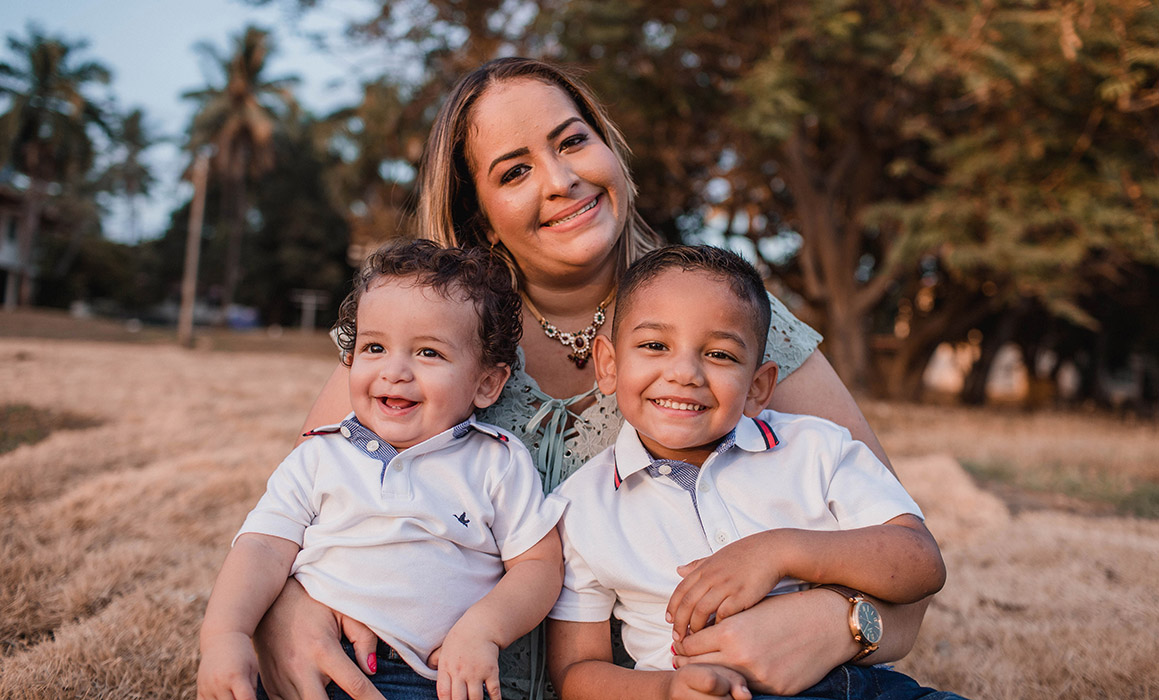Frequently Asked Questions (FAQs)
The CASA Las Vegas Program
Email: casa@clarkcountycourts.us
Phone: 702-455-CASA (2272)
601 North Pecos Road Bldg. D
Las Vegas, NV 89101
A Court Appointed Special Advocate (CASA) volunteer is a professionally trained community member who is appointed by a judge to represent the best interest of children who have been abused, neglected or abandoned. In some states, CASA volunteers are also referred to as a Guardian ad litem (GAL). CASA volunteers are professional level volunteers – the cream of the crop.
CASA volunteers are people like you. They are men and women from all types of ethnic and socioeconomic backgrounds. CASA volunteers come from all walks of life. They are teachers, college students, business people, retirees, stay-at-home parents, etc. The majority of our CASA volunteers have either full or part-time employment. They are people with passion and desire to make a life-long difference in the lives of children in the foster care system. They ensure that foster children’s needs are being met and make certain that the voices of the children are heard.
CASA volunteers must be 21 years or older and be willing to make a minimum commitment of two years . CASA volunteers are ordinary citizens doing extraordinary work. No special or legal background is required. Volunteers must undergo extensive background screenings, and are thoroughly screened through an application, interview process and training, to assess the individual’s objectivity, competence and commitment.
CASA volunteers get to know the child and speak to everyone involved in the child’s life, including their family members, teachers, attorneys, social workers, therapists, psychiatrists, and others, who are knowledgeable about the child’s history and/or current situation. The CASA volunteer may also review school records, social worker reports and other relevant documents pertaining to the child (ren). To effectively advocate, CASA volunteers:
- RESEARCH: The CASA volunteer conducts thorough and independent research for facts on the case by reading documents, case files, and speaking to everyone involved in the child’s life, including the child.
- FACILITATE:The CASA volunteer works in collaboration with the other parties on the case, to ensure the case is progressing and that the Court’s recommendations are being followed. The CASA volunteer may also facilitate visits among the siblings and/or family members. The CASA volunteer attends meetings to represent the best interests of the child.
- MONITOR: The CASA volunteer monitors the child’s situation, by visiting with the child on a regular basis, to make sure the child’s needs are being addressed. CASA volunteers monitor progress being made on the case and review whether court ordered services for the child and/or the family are being provided. Sometimes, the CASA volunteer may be the only consistent adult the child knows, as he/she moves through the maze of the child welfare system.
- ADVOCATE:The ultimate role of the CASA volunteer is to advocate/speak up on behalf of the child, whether this is in or out of court, to promote and support the safety, permanency and well-being of the child. The CASA volunteer writes court reports, attends court, and makes recommendations about what he/she believes to be in the child’s best interest, as it relates to safely, permanency and well-being. This information helps the Judge make informed decisions about what’s best for the child’s future. Each case is as different as the uniqueness of the child involved.
There is very minimal cost associated in becoming a CASA volunteer. There is an initial cost associated with the application for requesting the 3-Year Department of Motor Vehicle (DMV) driving history ($8.00). Additionally, some states require a fee in order to obtain Child Abuse Neglect records. This cost only applies if the individual has resided outside the State of Nevada, within the past seven years.
Social workers are employed by the government and have responsibilities to the entire family. They sometimes are assigned as many as 12-15 cases (20-50 children) at a time. A CASA volunteer will be matched with one child or a sibling group, as their initial case assignment. The CASA volunteer does not replace a social worker/case worker on a case. He or she becomes an additional member of the child’s team. The CASA volunteer can thoroughly examine a child’s case, has knowledge of community resources, and can make recommendations to the court independent of what the case worker or child welfare agency may recommend.
CASA volunteers advocate for best interest, while the children’s attorneys advocate for their client wishes, as well as to protect the children’s legal rights. CASA volunteers do not provide legal representation in the courtroom. While CASA volunteers may also tell the Judge about the child’s wants and desires, their primary role is to represent the child’s best interests. CASA volunteer are required to submit a written report to the courts every six month, whereas, attorneys are not required to submit a report.
The training schedule is conducted in five consecutive weeks/sessions. Each session contains approximately 3 hours of self-guided work that participants complete online and a 3-hour class (in person) where participants attend as a group. Training is currently being offered in person at the Clark County Government Center.
CASA volunteers often times become the one consistent and committed adult in the child’s life. When children experience multiple foster home placements, changes in schools, change of social workers, it’s the CASA volunteer who remains the constant in the child’s life. Because CASA volunteers are only assigned to one child or a sibling group, they are able to develop meaningful relationships with the child (ren), and get to know the child (ren). CASA volunteers get to spend quality time with the children because they do not have a caseload. CASA volunteers are there to listen to the child talk about their fears, concerns, or aspirations and wishes. CASA volunteers encourage the child (ren) to express their hopes and dreams. By remaining objective observers, CASA volunteers allow children to trust that, in a time of trouble, there will be a committed adult who is there for them.
Typically, CASA volunteers are assigned to one case at a time. This could be one child or a sibling group. Some of our experienced CASA volunteers may be assigned to two cases simultaneously.
In 2018, there were nearly 950 State and Local CASA programs in 49 states including the District of Columbia.
Research studies have shown that the introduction of just one caring adult can change that child’s life forever. Children in foster care, who have experienced abuse, loss, rejection and disappointments, can learn to trust, hope and love again. A CASA volunteer makes a profound and positive difference in the lives of abused and neglected children.
Research shows that children who are assigned CASA volunteers tend to spend less time within the foster care system than those who do not have CASA representation. Children with CASA volunteers tend to receive more court ordered services, as these needs are brought to the Judge’s attention. Children with a CASA volunteer also tend to achieve permanency sooner than those without an assigned CASA volunteer. Lastly, children with an assigned CASA volunteer have better outcomes in school.
A CASA volunteer remains on the case until permanency is achieved. However, there is a minimum 2-year commitment required.
There are other child advocacy organizations, but CASA or GAL is the only programs where volunteers are appointed by the court to represent the best interest of abused and neglected children. In Clark County, children in foster care may also be appointed a Volunteer Educational Advocate to oversee the children’s educational needs only.
A CASA volunteer generally sees a child on an average of 8 to 15 hours per month to fulfill their volunteer responsibilities. Approximately every six months, volunteers submit written reports and attend court hearings regarding the child.
All potential CASA volunteers must complete a screening process that includes an orientation session, written application packet, submission of fingerprints, background clearances, reference checks and a personal interview. Upon submission of the application and background forms, an interview will be scheduled with a panel consisting of a CASA staff member and CASA volunteers. Upon acceptance into the program, following the interview, the individual will be invited to attend training.
Through the National CASA Association approved pre-service training curriculum, CASA volunteers will gain the necessary training and skills needed to effectively advocate for children involved in the complex child welfare and court system. Volunteers are also required to complete a minimum of 12 hours of In-Service training each year. A successful CASA volunteer is mature, stable, open-minded, empathetic, collaborative, and confident. They also have the ability to problem-solve and have strong written and verbal communication skills.
- COMMITMENT:When a CASA volunteer takes on a case, he/she takes on a child’s future. CASA volunteers are asked to stay with the case until it is resolved. This may take a year or (usually) longer. The amount of time given to a case will vary depending on the ages and needs of the children, stage of the proceedings when the case is assigned, and the complexity of the case.
- OBJECTIVITY:The CASA volunteer’s role is to represent the best interests of the child, and that may not always be what the child wants. CASA volunteers must be willing to talk to everyone involved in the case in order to get a clear picture of the child’s life. The CASA volunteer must remain objective and base their recommendations on the information they have gathered. Most importantly, the CASA volunteer visits the child at least once a month, in order to gain an understanding of his/her situation.
- COMMUNICATION SKILLS:CASA volunteers must be able to talk to a wide variety of people, from healthcare professionals, attorneys, caregivers, to school officials, and parents. CASA volunteers must be able to articulate their findings in writing and present to the court with a unique “child centered” perspective, to help the Judge make the best decisions for these children.
The children represented by CASA volunteers range from birth through 18 years of age and come from a wide range of cultural backgrounds. They have come to the attention of the courts as a result of abuse, neglect and/or abandonment. Many have been drug exposed, physically and/or sexually abused, or were lacking basic necessities, (food, medical care, shelter, supervision.) The CASA volunteer’s preferences are considered when assigning a case.
CASA volunteers are supported by a volunteer peer mentor, who is an experienced CASA volunteer. The peer mentor serves as a coach for the newly trained volunteers. Each volunteer is also assigned to a CASA Program Supervisor, who is available to answer any questions and provide additional guidance, support and supervision. Most importantly, CASA volunteers have the support of each other.
National studies have shown that a child who has been assigned a CASA volunteer spends less time in court and less time in foster care than those who do not have CASA volunteer representation. We want to be able to provide a CASA volunteer to every abused/neglected child who is under the jurisdiction of the Eighth Judicial District Court’s Dependency system of Clark County Nevada.


